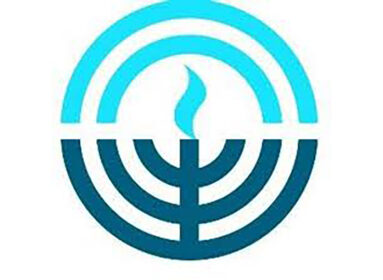
By Rabbi Tzvi Hersh Weinreb
I
n this week’s Torah portion, Vayetze, no less than 11 newborns are given names. In every case, these names are given by women; Leah and Rachel. Each name is carefully crafted by these women and is designed, not only to reflect the emotions of the moment, but to shape and give direction to the destinies of each of these children.
Consider these two examples: Leah gives her third son the name Levi, which means “connected,” or “attached.” This reflects her confidence that with the birth of a third son, her husband, Jacob, will become more attached to her. But it is also a message to the baby Levi that he will grow up to be “attached” to others. In his lifetime, he is typically number two of the duo “Simon and Levi,” secondary to his brother. And his progeny become “attached” to the Almighty and to all things sacred as the tribe of priests for the rest of Jewish history.
Leah then names her fourth child Judah, which means to praise or to thank, because of the special gratitude she experiences with his birth. And Judah ultimately, in his own life and through his descendants, gives praise to the Lord in his actions and with his words.
In more recent times, it has become rare for a Jewish parent to invent a new name for his or her child. The prevalent custom is to name a child for a deceased ancestor or for some other revered personage. The child who carries the name of a grandparent surely internalizes the message that in some way his life should reflect some of the values of that grandparent.
I know for whom I was named. He was my great-grandfather, my mother’s mother’s father, Tzvi Hersh Kriegel. He was an immigrant to America, hailing originally from Galicia. His portrait adorned one of the walls of my grandparents’ home, and it showed an immaculately dressed, bright-eyed but old-fashioned middle-aged man, with a luxuriant red beard. As a child, I learned much about him from his widow, my great-grandmother. I learned of his commitment not only to Jewish observance, but to all aspects of the Galitzianer culture, especially to its wry humor and nostalgic Chassidic tunes.
I visit his grave ever more frequently as time goes on. And I both consciously and unconsciously model myself after him. When I ask myself, “Who am I?” a significant part of my answer relates back to him and to his name bequeathed to me.
I have found myself preaching over the years to those parents who would listen that they should choose the names they give their children carefully, and that rather than choose a name because they like the way it sounds or because of its popularity, they should select a name of a real person, someone who stood for something, someone your child could eventually emulate.
In my Torah study and in my readings of Jewish history, I have noticed that during different eras, different names seem to predominate. I find it fascinating that the names Abraham, Moshe, David, and Solomon are today quite popular and have been certainly since the days of that second most famous Moses, Maimonides. Yet, in Talmudic times, those names seemed to have been quite rare. We find no major rabbis in the Mishnah or in the Gemara who carry the names of the aforementioned four biblical heroes. No Rabbi Moshe, no Rabbi Abraham, but strangely more than one Rabbi Ishmael. And of course, returning to this week’s Torah portion, Judahs and Simons aplenty.
“What is in a name?” As is so often the case in rabbinic literature, one question answers the other.
There is a passage in the works of our Sages that tells of the three names each of us has. There is the name we were given at the time of our birth, which is the name we have discussed in this column. But there is also the name that we earn by our own deeds, the part of the answer to the “Who am I?” question that we ourselves provide.
And finally, there is a name that others give us, the reputation that we deserve. It is that name to which King Solomon in his Kohelet refers when he remarks, “A good name is better than fragrant oil, and the day of death than the day of birth.” And it is that very name which the Mishnah in Avot has in mind when it concludes that of all the crowns of glory that humans can achieve, there is one that stands supreme: the keter shem tov, the crown of a good name.
Rabbi Tzvi Hersh Weinreb is executive vice president, emeritus of the Orthodox Union.








 Southern New England Jewish Ledger
Southern New England Jewish Ledger














